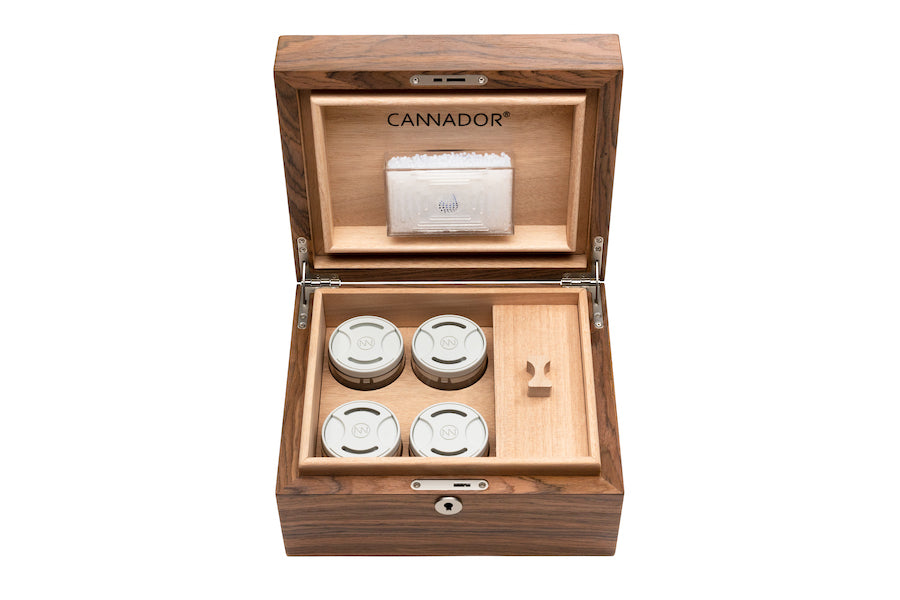There are certain properties of good weed containers that can maintain a bud’s overall quality and although some properties might seem obvious, many storage products fall short of maintaining these quality standards. We outlined a few of these properties and we also discuss some of the basic storage tips that can easily be employed by the DIY crowd.
One of the first and most critical properties to good weed containers is being air-tight or as close to airtight as possible. Oxygen degrades THC, thus diminishing potency, so by either flushing your container with nitrogen or making sure it’s not open and exposed to air, you can improve the longevity of your weed.
Moisture control is another property of good weed containers. A common mistake and myth is using fruit to add moisture to bud. This not only invites bacteria and mold growth, but the fruit also acts as a sponge and will evaporate all of its moisture into the container causing extremely high moisture levels. When moisture raises above 80% RH, mold growth is more likely to occur. We recommend using a 2-way humidity system that both emits and absorbs moisture to a set ratio. We have more to say on moisture control here: Humidity Control

Light control is an important property of good weed containers because UV light damages THC levels and therefore causes potency to decrease. The overall percentage decrease is marginal, but if you’re a connoisseur, then every point matters! It’s a good idea to keep your bud in a cool dark place or make sure that your jar reflects UVB, the spectrum of light also responsible for giving us sunburns. Here’s a further breakdown on UV light as relates to growing weed versus storing it: UV Light

Strain separation is another property of good weed containers because you do not want the terpenes from different strains to commingle. Each strain has its own distinctive taste and flavor and these terpenes contain aromatic compounds that also give it its distinctive smell. If two different strains rub up against each other, there is a potential for crossover, although the overall effect would be quite minimal. Blending two strains together in a grinder is a common practice for those seeking a mix of flavors.



